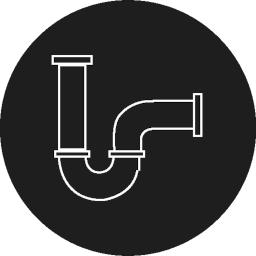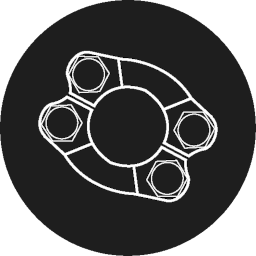TECHNICAL SPECIFICATIONS AND MATERIAL GRADES
During our years in SFF we have earned a record of supplying quality products with reliable technical backup. Together with our clients we cooperate to find the very best solutions. Presented with any challenge, our experienced staff will contribute with extensive
material know-how and technical guidance in a joint effort to solve any particular requirements.





The SFF Group is a complete supplier of piping products in all material grades, with a special focus on sophisticated material grades. Our stock is considered to be one of the most complete in the industry, with a wide range of products and material grades. Click to see our Scope of Supply and Stock Program.
CARBON STEEL
(CS/LTCS)
Carbon steels are steels where carbon is the main alloying element.
This material grade has a relatively low cost while still having
good mechanical properties. By changing the carbon content and
heat treatment procedure, various combination for strength and
ductility may be achieved. As carbon steels are going from being
ductile to brittle when cooled below a certain transition temperature,
special low-temperature carbon steels (LTCS) have been designed
to remain ductile at lower temperatures.
Carbon steels have low corrosion resistance and often need additional
corrosion protection when used in a corroding environment.
Galvanizing of bolts, external coating of tubes and internal cladding
of tubes are examples of corrosion protection used for carbon steel
in piping.
Typical application:
- Piping parts where corrosion is not a significant issue, e.g.
- liquid, gas and steam service.
- Bolting
- Automobile body components
- Machinery parts
TITANIUM GRADE 2
(UNS R50400)
Titanium grade 2, unalloyed titanium, consists of minimum
99.6 % titanium. The small amount of alloying elements remaining
have a solution strengthening effect. Pure titanium has a
density of almost half the value of iron and has an advantage if
weight reduction is important. Furthermore, titanium has excellent
corrosion resistance. Titanium also has good formability
and welding properties.
Typical applications:
- Chemical processing
- Desalination
- Hydrocarbon processing
- Aerospace & automotive
NICKEL ALLOY INCONEL 625 (UNS NO6625)
Inconel 625 is a nickel superalloy containing high amounts of chromium and molybdenum. The alloy has high strength and corrosion resistance at a wide temperature range, from cryogenic to about 1000 °C. This makes it suitable to use at temperatures where stainless steel can not be applied. However, nickel alloys have their drawback in being expensive due to the high cost of nickel.
Typical application:
- Offshore sour oil and gas production
- Seawater components
- Chemical process equipment
- Jet engine exhaust system


